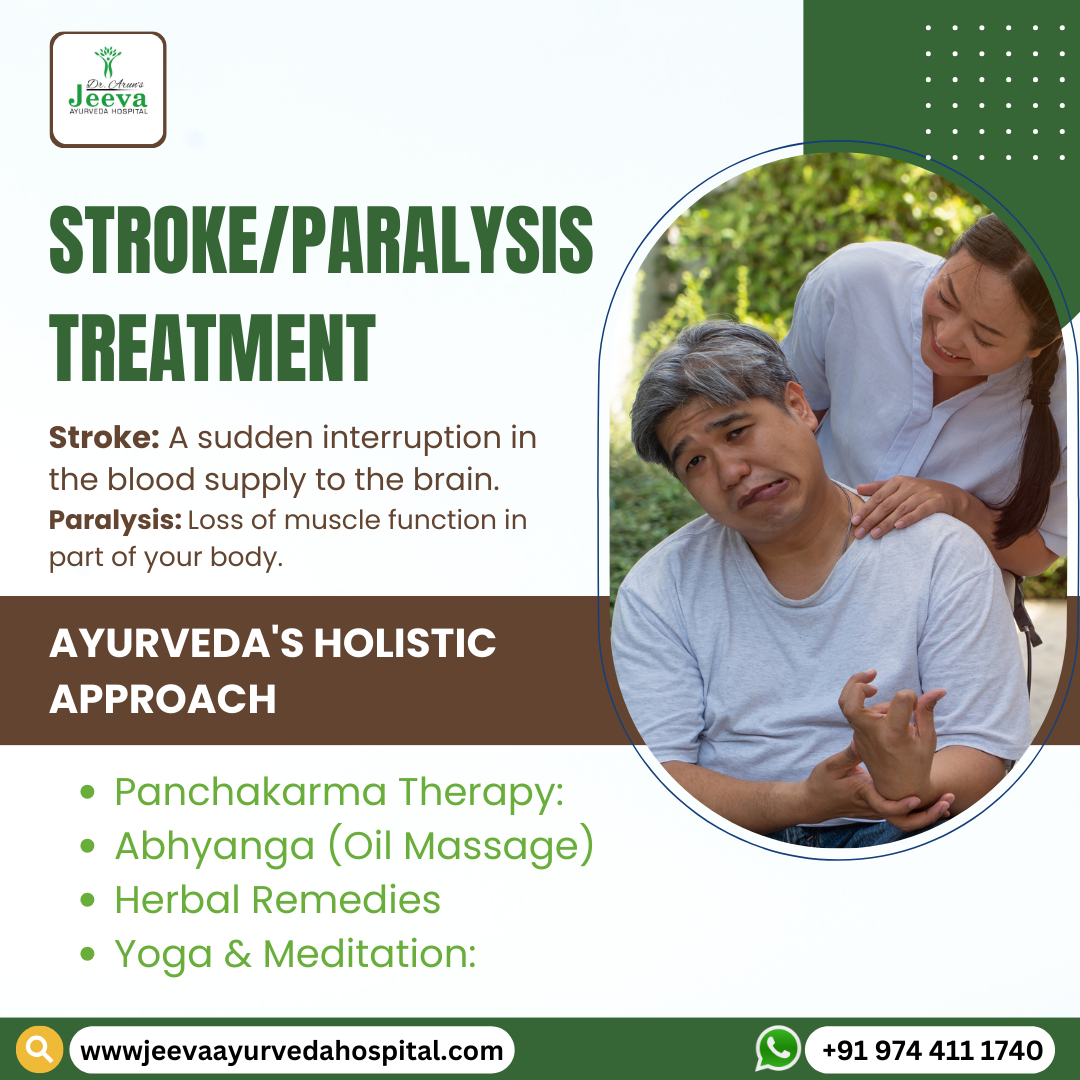Stroke and paralysis can be life-altering conditions, but Ayurvedic medicine offers holistic approaches to aid recovery and rehabilitation. This blog post delves into Ayurvedic treatments for stroke and paralysis, highlighting natural therapies, herbal remedies, and lifestyle practices that promote healing and enhance overall well-being.
Ayurvedic Treatments for Stroke and Paralysis: Natural Healing and Rehabilitation
Strokes and paralysis are serious health conditions that can significantly impact one’s quality of life. While conventional medicine offers various treatments, Ayurveda provides holistic and natural approaches that can support recovery and rehabilitation. By focusing on restoring balance and promoting overall well-being, Ayurvedic treatments can be an effective complement to traditional medical care. In this blog post, we explore Ayurvedic therapies, herbal remedies, and lifestyle changes that can aid in the recovery from stroke and paralysis.
Understanding Stroke and Paralysis in Ayurveda
In Ayurveda, stroke is often referred to as “Pakshaghata,” which involves the impairment of bodily functions due to an imbalance of the doshas (Vata, Pitta, and Kapha) and the disruption of blood flow to the brain. Paralysis, known as “Ekanga Vata,” is often caused by the aggravation of Vata dosha, leading to loss of movement and sensation in certain parts of the body. Ayurvedic treatments aim to balance the doshas, improve circulation, and restore the functions of the affected areas.
Ayurvedic Therapies for Stroke and Paralysis
Ayurvedic treatments for stroke and paralysis are comprehensive and include various therapies designed to promote healing and improve mobility. Here are some of the most effective Ayurvedic therapies:
1. Panchakarma
Panchakarma is a detoxification therapy that plays a crucial role in Ayurvedic treatment for stroke and paralysis. It includes a series of purification procedures that help eliminate toxins from the body and restore balance.
Virechana (Purgation Therapy): Helps cleanse the body of accumulated toxins, especially from the digestive tract.
Basti (Enema Therapy): Administers medicated oils or decoctions through the rectum to balance Vata dosha and improve neuromuscular function.
Nasya (Nasal Administration): Involves the administration of medicated oils or powders through the nostrils to clear the head and neck region.
2. Abhyanga (Oil Massage)
Abhyanga is a therapeutic massage using warm medicated oils. This therapy helps improve circulation, reduce muscle stiffness, and enhance nerve function. Regular Abhyanga can also promote relaxation and reduce stress.
3. Shirodhara
Shirodhara involves pouring a continuous stream of warm medicated oil on the forehead. This therapy calms the nervous system, reduces stress, and improves mental clarity. It is beneficial for patients recovering from stroke by promoting relaxation and enhancing cognitive function.
4. Pizhichil (Thaila Dhara)
Pizhichil is a form of therapeutic oil bath where warm medicated oil is poured over the body in a rhythmic manner. This therapy helps improve muscle tone, reduce stiffness, and enhance mobility.
Herbal Remedies for Stroke and Paralysis
Ayurveda utilizes various herbs known for their neuroprotective and rejuvenating properties. These herbs help restore nerve function, improve circulation, and reduce inflammation.
Ashwagandha (Withania somnifera): Known for its adaptogenic properties, Ashwagandha helps strengthen the nervous system and improve muscle strength.
Brahmi (Bacopa monnieri): Enhances cognitive function, memory, and mental clarity. It also has neuroprotective properties.
Guggulu (Commiphora mukul): Promotes circulation and reduces inflammation.
Guduchi (Tinospora cordifolia): Known for its immune-boosting and anti-inflammatory properties, Guduchi helps in the recovery process.
Turmeric (Curcuma longa): Contains curcumin, which has anti-inflammatory and antioxidant properties, supporting overall healing.
Lifestyle Changes and Dietary Recommendations
In addition to therapies and herbal remedies, lifestyle changes and dietary adjustments are crucial for recovery from stroke and paralysis.
1. Diet
Balanced Diet: Incorporate fresh fruits, vegetables, whole grains, and lean proteins into your diet.
Hydration: Drink plenty of water and herbal teas to stay hydrated and support overall health.
Avoid: Processed foods, excessive salt, sugar, and unhealthy fats.
2. Exercise and Physical Therapy
Regular Exercise: Engage in gentle exercises such as walking, yoga, and stretching to improve mobility and strength.
Physical Therapy: Work with a physiotherapist to develop a tailored exercise program that addresses your specific needs and promotes recovery.
3. Stress Management
Meditation and Yoga: Practice meditation and yoga to reduce stress, improve mental clarity, and enhance overall well-being.
Adequate Sleep: Ensure you get sufficient sleep to support the body’s natural healing processes.
Conclusion
Ayurvedic treatments offer a holistic and natural approach to managing stroke and paralysis, focusing on restoring balance, improving circulation, and enhancing overall well-being. By incorporating Ayurvedic therapies, herbal remedies, and lifestyle changes into your recovery plan, you can support your body’s healing process and improve your quality of life. Consult with an experienced Ayurvedic practitioner to develop a personalized treatment plan that meets your specific needs and health goals. Transform your life and embrace a healthier, more balanced future with the healing power of Ayurveda.


Give a Reply